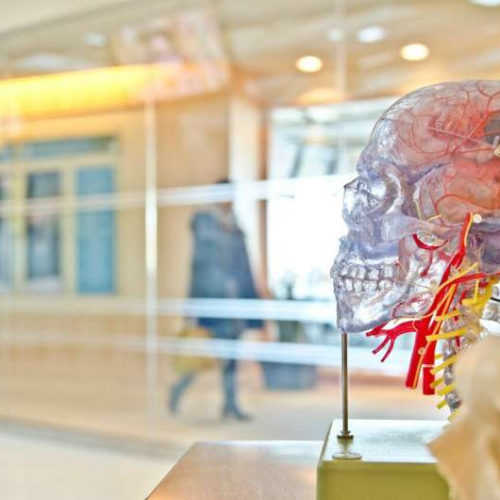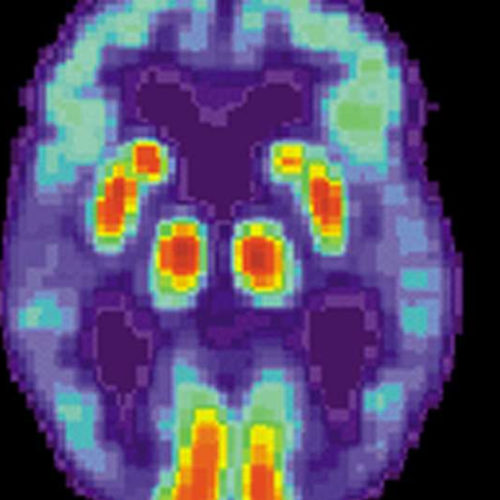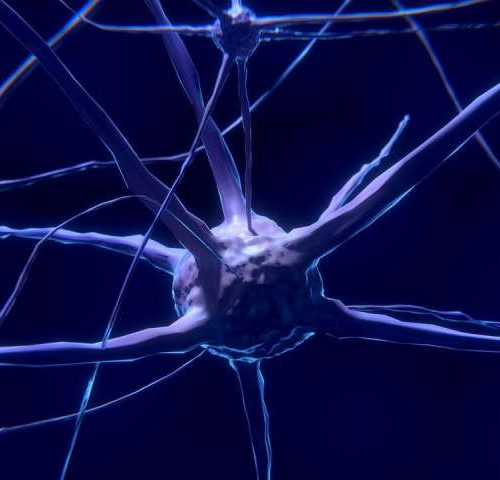IOS PRESS IMAGE: UNIDAD DE DETERIORO COGNITIVO CREDIT: VALDECILLA Amsterdam, January 21, 2021 – A new study published in the Journal of Alzheimer’s Disease carried out by researchers at the Marqués de Valdecilla-IDIVAL University Hospital, in collaboration with researchers at the University of Bonn Medical Center, proposes that major surgery is a promoter or accelerator of Alzheimer’s disease (AD). The...
Tag: <span>Alzheimer’s disease</span>
Following the hops of disordered proteins could lead to future treatments of Alzheimer’s disease
UNIVERSITY OF CAMBRIDGE Researchers from the University of Cambridge, the University of Milan and Google Research have used machine learning techniques to predict how proteins, particularly those implicated in neurological diseases, completely change their shapes in a matter of microseconds. They found that when amyloid beta, a key protein implicated in Alzheimer’s disease, adopts a highly disordered shape,...
Memory may be preserved in condition with brain changes similar to Alzheimer’s disease
by American Academy of Neurology Credit: Unsplash/CC0 Public Domain Primary progressive aphasia is a rare neurodegenerative condition characterized by prominent language problems that worsen over time. About 40% of people with the condition have underlying Alzheimer’s disease. But a new study has found that people with the condition may not develop the memory problems associated with...
New studies support blood test for early detection of Alzheimer’s disease
by University of Gothenburg Credit: Unsplash/CC0 Public Domain In three recent publications in Molecular Psychiatry, Brain and JAMA Neurology researchers from the University of Gothenburg provide convincing evidence that an in-house developed blood test for Alzheimer’s disease can detect the disease early and track its course, which has major implications for a potential use in clinical practice and treatment trials. “This is...
Brain Cells Most Vulnerable to Alzheimer’s Disease Identified by Scientists
A major mystery in Alzheimer’s disease research is why some brain cells succumb to the creeping pathology of the disease years before symptoms first appear, while others seem impervious to the degeneration surrounding them until the disease’s final stages. Now, in a study published in Nature Neuroscience, a team of molecular biologists and neuropathologists from the UCSF Weill Institute for...
Hydrogen sulfide could guard against Alzheimer’s disease
by University of Exeter PET scan of a human brain with Alzheimer’s disease. Credit: public domain Typically characterized as poisonous, corrosive and smelling of rotten eggs, hydrogen sulfide’s reputation may soon get a facelift. In experiments in mice, researchers have shown the foul-smelling gas may help protect aging brain cells against Alzheimer’s disease. The discovery of the biochemical...
Testing memory over four weeks could predict Alzheimer’s disease risk
New research suggests testing people’s memory over four weeks could identify who is at higher risk of developing Alzheimer’s disease before it has developed. Importantly, the trial found testing people’s ability to retain memories for longer time periods could predict this more accurately than classic memory tests, which test memory over half an hour. The...
Study: Memory deficits resulting from epigenetic changes in Alzheimer’s disease can be reversed
Memory loss associated with Alzheimer’s disease (AD) may be able to be restored by inhibiting certain enzymes involved in abnormal gene transcription, according to a preclinical study by researchers at the University at Buffalo. The findings could pave the way toward new treatments for Alzheimer’s disease. The paper will be published in Science Advances. Image credit: University...
A possible way to prevent Alzheimer’s disease: Editing a key gene in human nerve cells
by Bob Yirka , Medical Xpress Credit: Pixabay/CC0 Public Domain A team of researchers at Laval University has found evidence that it might be possible to the chances of developing Alzheimer’s disease by editing a key gene in nerve cells. In their paper uploaded to the bioRxiv preprint server, the group describes experiments they conducted that involved editing genes...
Researchers find dementia starts much earlier than previously assumed
by Hildegard Kaulen, Universitaet Tübingen Alzheimer’s disease develops over decades. It begins with a fatal chain reaction in which masses of misfolded beta-amyloid proteins are produced that in the end literally flood the brain. Researchers including Mathias Jucker from the Hertie Institute for Clinical Brain Research (HIH) in Tübingen and the German Center for Neurodegenerative Diseases (DZNE) show in the...









